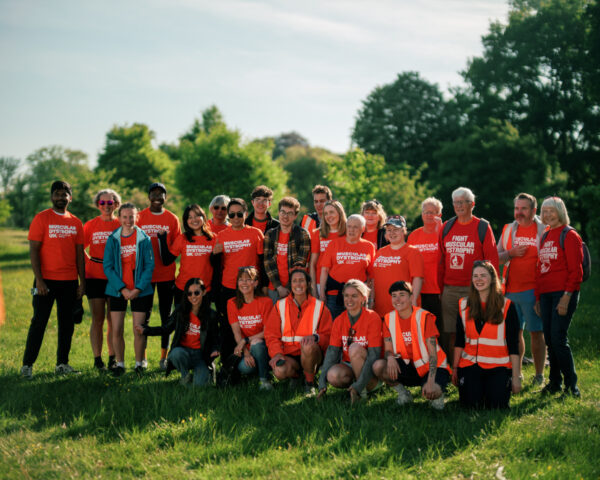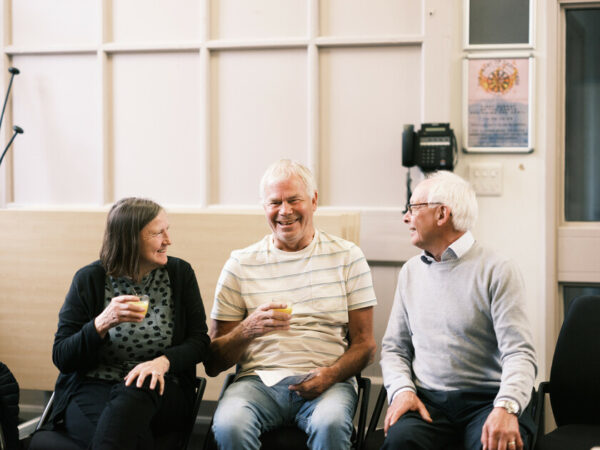Get the latest news, inspiring stories, upcoming events, and valuable support services delivered straight to your inbox.
MDUK will call for improved multidisciplinary care across Northern Ireland today
MDUK will today call for improved multidisciplinary care in Northern Ireland at an All-Party Parliamentary Group.
It marks the third and final set of recommendations from our devolved nation reports that shine a light on how the pandemic has widened pre-existing gaps in neuromuscular care.
It’s estimated that there are more than 2,000 people in Northern Ireland living with a muscle-wasting condition, and over the years this community has faced a range of challenges due to limited clinic space and stretched staff capacity. As well as this, Northern Ireland’s commissioning pathways don’t provide sufficient flexibility to account for the support that this growing neuromuscular population requires.
For example, Northern Ireland has just one hub in Belfast from which all specialist neuromuscular care is provided, meaning some are forced to travel across the country for treatment. Further to this, there are just two part-time neuromuscular consultants, two full-time neuromuscular clinicals nurses and two full-time physiotherapists running all clinics to support the country’s entire neuromuscular community.
There is nobody to replace staff when they leave nor any support available to start training to prepare for this inevitable staffing gap.
Claire Boylan, from Belfast in Northern Ireland and pictured below, has found the past two years very challenging. She lives with the very rare condition Miyoshi Myopathy, which causes progressive muscle weakness and affects her feet, ankles and calf muscles.
Claire said: “I have experienced delays in getting supplies for the ventilation machine I use at night and most of my appointments have been pivoted to the telephone or video calls. I do feel that there needs to be more support, especially for young adults who recently have transitioned from children services as there is definitely a gulf in support between the services. I also feel that if services like hydrotherapy were more widely available then it would greatly help people living with muscle-wasting conditions. It’s very important for multidisciplinary care to be improved.”

At the APPG meeting today, MDUK will share recommendations on how care can be improved in a post-pandemic world. Read full report here
These recommendations evolved from a survey we conducted at the height of the pandemic
Our priority suggestions include:
• Allocating sustainable and consistent funding for neuromuscular services, including more neuromuscular consultants, nurses, physiotherapists, psychologists, and occupational therapists
• Increasing the number of neuromuscular staff who can work with community services to bridge the gap between specialist teams and surrounding areas
• Providing specialist mental health services for people with a neuromuscular condition.
• Implementing local virtual outreach clinics to help reduce waiting lists and address the growing backlog appointments
• Establishing an NHS-managed regional neuromuscular clinical network across Northern Ireland and appointing neuromuscular leads to ensure a connection with the government
• Providing a specific clinic space for people with muscle-wasting conditions to access appointments
Claire, who will speak at today’s meeting to share her experiences of the pandemic, added: “England has standalone neuromuscular centres and I believe that Northern Ireland could benefit from one, too. We need to ensure that there are enhanced systems in place to help individuals cope and understand these conditions and for them to know that they’re not alone. It is so important that these services – which are a lifeline to many – are better funded and supported.”
Michaela Regan, our Head of Policy and Campaigns, said: “Thousands of people living with a muscle-wasting condition have experienced significant deterioration in their overall wellbeing throughout the pandemic, including those across Northern Ireland. Many people like Claire will now require more complex and time-intensive care as a result of the pandemic, so implementing our recommendations would be life-changing for the muscle-wasting community. We look forward to presenting our findings at the meeting and working with stakeholders to implement our recommendations.”


